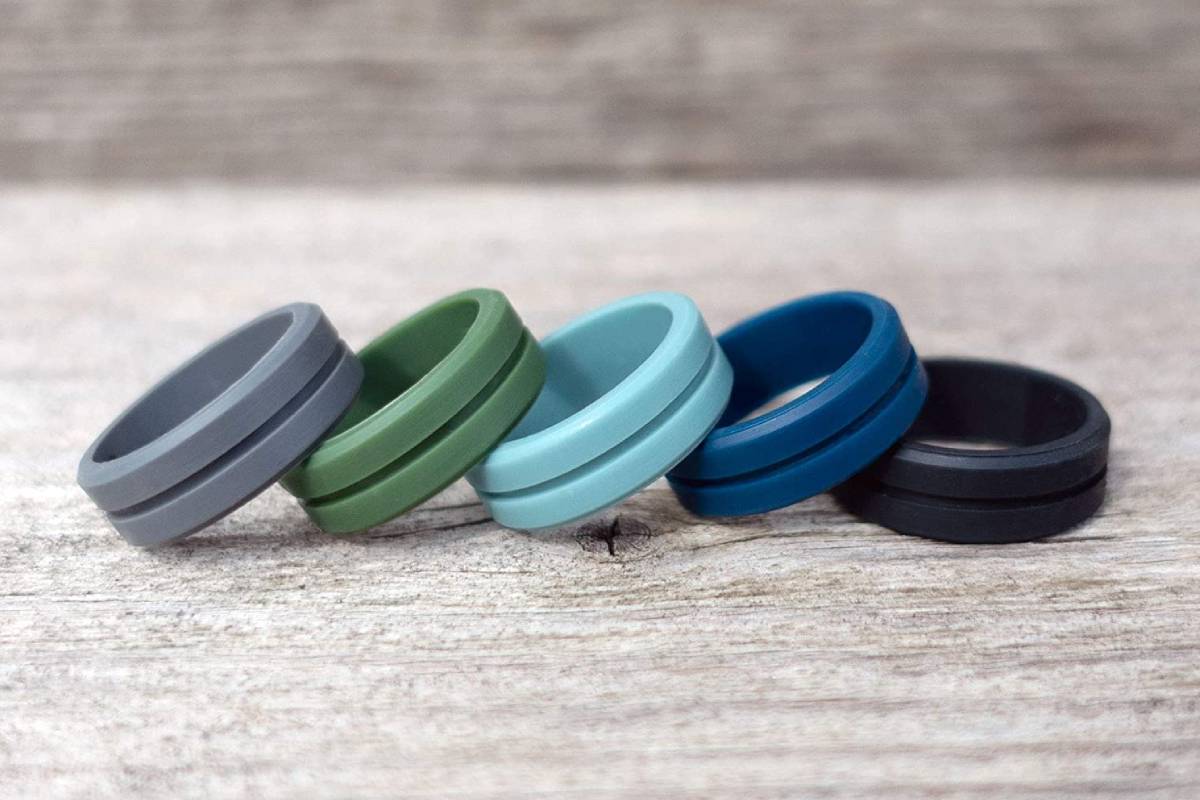
Metal Vs. Silicone Rings: Understanding The Differences
Metal Vs. Silicone Rings: Understanding The Differences
Finding a ring that symbolizes your love is hard. Finding a ring that you plan to wear for the rest of your life is downright intimidating. From aesthetics and wearability to personal style and safety, there are a lot of factors to consider when purchasing a ring.
Aside from the traditional metal rings, what other options are there?
A material quickly growing in popularity is silicone. Silicone rings are affordable and offer several benefits that traditional materials do not. Keep reading to understand the differences between the two materials and how to decide which is best for the lifestyle of those wearing them.
Traditional Metal Rings
Traditionally, rings that symbolize commitment and love are made of silver, gold, or platinum. These precious metals are known for durability and customization. If properly taken care of, metal rings can last for generations. Additionally, they’re easy to engrave and can be customized with gemstones.
While metal rings are the traditional ring option, you must consider their disadvantages before making such a big (and expensive) decision.
Speaking of expensive, metal rings are pricey. You pay hundreds, if not thousands, for a good quality precious metal. Imagine paying that for a ring, and the recipient quickly learns they have a metal allergy. Most metal rings on the market are not hypoallergenic. Therefore, skin irritation is joint among those with sensitive skin and allergies.
When deciding on a ring, you also want to consider comfort level and safety. Metal rings are generally comfortable, but they don’t allow for flexibility. If your hands swell due to heat or activity, your metal ring will likely become too tight and uncomfortable. This leads to several safety concerns, such as ring avulsions.
Why People Are Turning To Silicone Rings
Silicone rings are strong but may not last as long as precious metal bands. However, the benefits greatly outweigh that one disadvantage.
Silicone is a versatile material that offers malleability, flexibility, and nonconductive and nonporous features. This means it’s safe in all conditions and for all professions. Silicone is also hypoallergic, so no strange rashes or adverse chemical reactions will occur.
Those with silicone rings often find the band so comfortable and flexible that they forget they are wearing it. This is mostly due to the fact that once your finger is measured, silicone forms around your unique finger structure. There’s no slipping and sliding or too-tight feeling. Plus, silicone rings are lightweight.
One of the biggest advantages silicon rings have over metal rings is affordability. If a silicon ring happens to get lost, replacing it will typically cost less than a hundred dollars.
Choosing The Right Ring For You
When you select a ring that will be worn for a lifetime, you want to pick one that fits the recipient’s lifestyle. Just because it’s tradition to purchase metal rings doesn’t mean it’s the right choice based on that individual. Even if a precious metal is preferred, you must consider the safety risks.
Keep in mind that it’s not the material of the ring that matters as much as what the ring symbolizes. Silicon rings may not be the traditional route, but the benefits are quickly outweighing those of metal rings.


